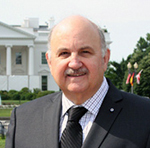By Stephen B. Bryen

WASHINGTON, D.C. — A lawsuit filed in a San Diego Superior Court has significant implications for churches, synagogues, mosques and temples across the country.
The lawsuit filed by Israel Dahan, the father of Noya Dahan, and other unnamed plaintiffs, argues that the shooting at the Poway Chabad synagogue on April 27, 2019, happened because of lax security. In 2019, April 27 was the last day of the Jewish Passover and also the Jewish sabbath.
In the United States, the first two and last two days of Passover are considered holy and a special religious service takes place on the last day of Passover, which is a day of remembrance. Noya Dahan, at the time 8 years old, was wounded by a shooter, as was her uncle. The synagogue’s rabbi was also wounded and a congregant, Lori Gilbert Kaye, was killed trying to protect the rabbi. The shooter, John Timothy Earnest, was armed with an AR-15 style rifle. His trial has been delayed due to the COVID-19 pandemic.
The plaintiffs argue that the Chabad synagogue did not have security in place to protect congregants even though it anticipated that the synagogue might be a target of both anti-Semitic and terrorist attacks. Accordingly, the synagogue applied for a Federal grant under the Nonprofit Security Grant Program (NSGP) administered by the Federal Emergency Management Agency.
FEMA agreed that the synagogue faced tangible threats and awarded a grant to the synagogue. While the grant funds had yet to be transferred, the lawsuit argues that the synagogue had sufficient funds to put guards and other security measures in place, but failed to do so.
In general, most religious places (including religious schools, camps, social halls and residences) do not have security in place. Few have trained security guards. Because of the pandemic, many religious buildings are now empty and unguarded, leading to a rash of attacks including burglaries, vandalisms, arsons and desecrations and, in some cases, random shootings and bombings.
Even before the pandemic, church membership in the United States was declining, although many millions still attended services and contributed financially to their congregations. Unfortunately, even in wealthy congregations and well-financed national assemblies, implementing and paying for security remains an issue.
Some take the view that security measures are intrusive and blunt the welcoming nature of church attendance and participation. Others think that the threat is small and there is no reason to pay for guards or buy security technology such as surveillance cameras, security fencing, bullet proof glass, bollards and other equipment to protect church-goers.
The FEMA Nonprofit Security Grant Program is intended to help congregations that feel they face an imminent threat and ask for help in paying for security improvements. The NSGP supports hardening and other physical security enhancements. More recently it also can be used to pay for professional guards. In fiscal 2021, the NPSG allocated $180 million, a significant increase from 2019, when FEMA had $60 million available for grants. The NSGP does not require a needs test.
Chabad or Chabad Lubavitch is an Orthodox Jewish Hasidic movement. It supports 3,500 Chabad centers worldwide and has 2,894 Chabad institutions in the United States, including synagogues. In 2008, the Nariman House, designated as a Chabad House and synagogue in Mumbai, India, was attacked by terrorists. The rabbi and his wife, Gavriel and Rivka Holtzberg, were killed along with six others. The Holzbergs were from Brooklyn. While the Chabad House was under siege, some of the victims were tortured or beaten up before they were killed. Rivka Holzberg was pregnant at the time.
In 2014 there was a stabbing attack at Chabad headquarters in Crown Heights, New York. A 22-year-old Israeli student was stabbed and New York City police shot and killed the assailant, who reportedly shouted “Kill the Jews.” In 2021, there was an attack during an outdoors candle lighting ceremony at a Chabad center in Lexington, Kentucky, where a man was run over by a car.
Putting aside the NSGP, the Poway Chabad synagogue should have had some security measures in place — at least a guard at the entrance. But the lawsuit takes the position that notwithstanding what Poway should have done, by defining itself as under threat and obtaining federal help, those steps placed the synagogue under an obligation to perform in order to protect the congregants.
There is a principal of law called “duty of care.” In this particular case, the obligation of duty of care is strengthened by the actions of the synagogue leadership seeking security help.
For congregations that have applied for or received NSGP grants, or have asked for funds for security from other state, local or charitable organizations, there is an obligation to take action and not wait for the check to arrive and clear the bank. While not everything can be done without funds in hand, putting guards in place and organizing security volunteers is something that can be done quickly and is affordable.
It isn’t clear if the plaintiffs will win their case in court, but the fact of the lawsuit itself should serve as a warning to church leaders (here meaning all religions and denominations) that they have an obligation to protect their worshippers.
*
Stephen Bryen is a former senior Defense Department official, and author of “Security for Holy Places: How to Build A Security Plan for Your Church, Synagogue, Mosque or Temple” (Morgan James Publishing). This article appeared initially in Washington Times.
Yes….! As a former yeshiva and talmudic scholar , I personally have been verbally and physically threated by so called security —??? when I explicitly made clear my intentions to respond with serious legal …stuff—-“shuls are not garrisons for wanta be cowboys…M M MIlch – btl